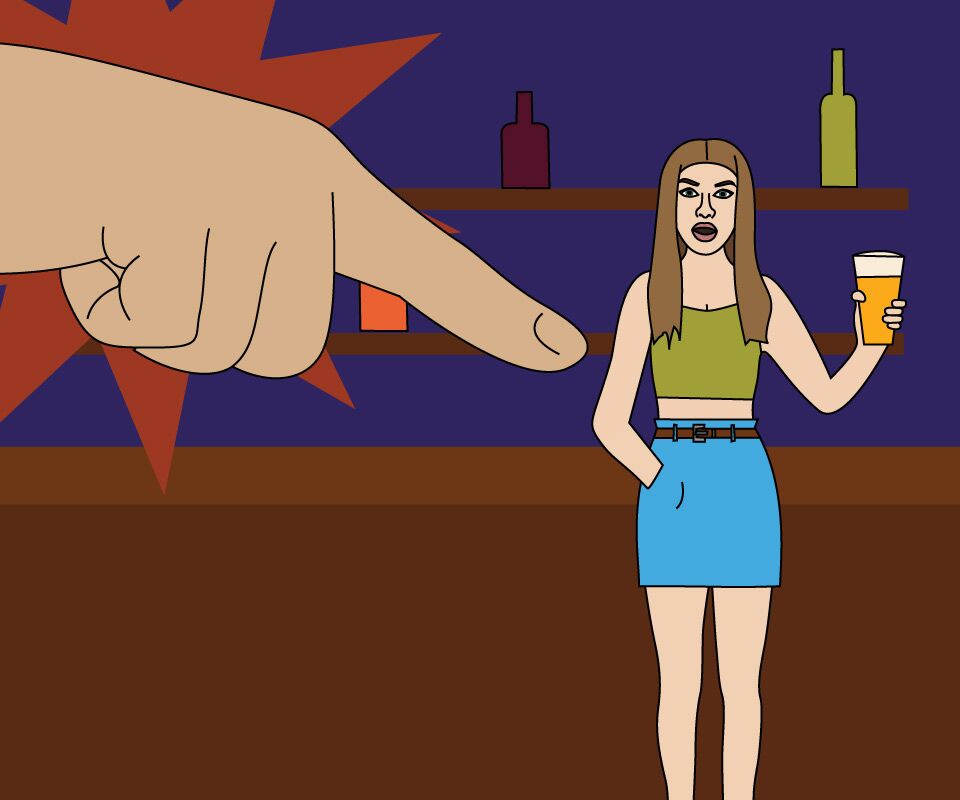This past year, we’ve heard a lot of conversations about racism, sexism, equality and sexual assault. It’s safe to say that something has changed.
Perhaps it’s the fact that some voices are now louder than others, and these ‘uncomfortable’ conversations are happening more often. Regardless of the reason, when we reflect on this past year from an optimistic perspective, we can see many instances of positive change.
But while movements like #MeToo and #TimesUp successfully dominate the news cycle, we still have a lot of work to do within our local communities. This is particularly apparent in the recent actions of our city’s police. According to Le Devoir, Montreal police faced backlash for launching a sexual assault prevention campaign that implied women make themselves more vulnerable to sexual assault when they drink too much.
The campaign was called “Je sors avec ma gang, je repars avec ma gang,” and was initially launched in 2012. Montreal police recently decided to reactivate the campaign by distributing some leftover flyers in the Plateau-Mont-Royal borough. However, they received a lot of backlash from social media users due to the victim-blaming nature of the campaign, and decided to retract it.
This isn’t the first time Montreal police have been involved in victim-blaming. In 2016, local police told girls at Villa Maria High School that they were “asking for harassment” because of their short skirts, reported CBC News.
We at The Concordian are appalled by the lack of social awareness in the Montreal police’s decision to re-launch this campaign. In a social climate bursting with conversations about sexual assault and victim-blaming, it’s inexcusable to promote the idea that victims are responsible for the horrible actions of perpetrators. While we’re glad they retracted the campaign and realized their mistake, the fact that they re-launched it in the first place shows we have a long way to go.
This isn’t an ongoing issue exclusive to Canada either. On Nov. 14, protests took place in Ireland against the use of a victim’s underwear as evidence in a rape trial. A 17-year-old girl accused a 27-year-old man of rape, and the man was found not guilty of the crime, according to Global News. The defendant’s lawyer argued that the jury should consider that the girl was wearing lacy underwear at the time. “You have to look at the way she was dressed,” the lawyer said. “She was wearing a thong with a lace front.” This sparked protests all over Ireland, and people posted pictures of their underwear on social media with the hashtag #ThisIsNotConsent.
Sexual assault is not the victim’s fault. It is the fault of the perpetrator—the one who chooses to violate and hurt an innocent person. We need to end the victim-blaming narrative, and we must continue to call out those who perpetuate it. Not only does this narrative place the blame on people who need to be listened to and believed, it also promotes lies. If sexual assault was related to how much someone drinks, then sober people wouldn’t get sexually assaulted—yet, they do. If sexual assault was related to how revealing an outfit is, then people wouldn’t get assaulted in the winter—yet, they do. If going to a club or bar makes people vulnerable to sexual assault, people wouldn’t get assaulted in their own homes—yet, they do.
We at The Concordian hope this upcoming year continues to see a huge shift in the narrative surrounding sexual assault. We hope survivors feel they are listened to, validated and respected, rather than blamed and condemned. The only people we must condemn are those who commit these acts—and those who continue to push this vicious, victim-blaming rhetoric.
Graphic by Ana Bilokin




